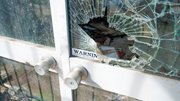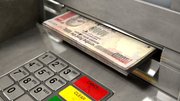Article
Wincor Nixdorf launches cash-recycling management system
Deployment of envelope-free ATMs has increased the amount of cash available in bank branches.

October 24, 2010
Wincor Nixdorf Inc. has launched a cash-recycling management system in the United States because deployment of envelope-free ATMs has increased the amount of cash available in bank branches.
Analysts agree intelligent deposit machines have increased cash deposits. But they are uncertain whether the increase in volume is sufficient to encourage banks to purchase cash recycling systems because of U.S. consumers' strong reliance on checks, although check writing is declining.
Wincor Nixdorf's CINEO C6030 Automated Teller Safe (teller cash recycler) and CINEO C4060 ATM are designed to reduce the cost of cash handling and servicing at branches. The machines cut the need for armored car services to deposit and pick up cash, and they eliminate the need for bank tellers to count and recount cash, said Jens Bohlen, CEO of Wincor Nixdorf Inc., which is based in Austin, Texas. CINEO is an acronym for Cash Intelligent NEO or New.
The ATM and the Automated Teller Safe use interchangeable banknote-holding cassettes. The Automated Teller Safe currently houses a maximum of seven cassettes, but a larger version of the machine, which will become available sometime in the future, will store eight cassettes. The ATM houses up to eight cassettes. Each cassette holds a maximum of 2,200 banknotes of any denomination, including $10s and $20s.
If one of the ATM's cassettes runs out of cash, bank employees remove one of the cassettes filled with banknotes from the Automatic Teller Safe. The employees then remove the empty cassette from the ATM, replacing it with a cassette loaded with banknotes. The empty cassette is then installed inside the Automated Teller Safe, ready to accept more deposits.
Both machines accept deposits and dispense funds to consumers but in different ways. Banks install the Automated Teller Safe behind the teller window away from bank customers. A customer hands the funds to the teller, who deposits the amount into the Automated Teller Safe. If the customer wants cash back, the teller hands the funds to the customer. The ATM is customer facing, and it dispenses cash directly to the customer.
At the BAI Retail Delivery 2010 Conference on October 20 in Las Vegas, Adam Sandoval, Wincor Nixdorf product manager for Self Service/Cash Systems, showed how both products operated as a team. Sandoval deposited a banknote he marked into the Automated Teller Safe. The safe recorded the deposit and placed the funds into one of the teller's cassettes. Sandoval then removed the cassette from the Automated Teller Safe and installed it in the ATM. He later withdrew the marked bill from the ATM to illustrate for onlookers how the recycling system operates.
Both the teller and the ATM have safety features that prevent removal of the cassettes by unauthorized bank employees. The cassettes, which contain a smart chip, provide information about the amount of cash inside and where and when the cassette was opened or used. Each cassette also is equipped with an inking device. If the cassette is removed by an unauthorized person, the device sprays dye on the banknotes, rendering them unusable.
"With our CINEO system, cash handling is limited to the teller," Bohlen said. "All cash is verified, counted and transported via innovative cassettes that are exchanged between the cash recycler, the ATM and the armored car carrier. This saves costs and significantly improves security."
Wincor Nixdorf's cash handling system can reduce the frequency of armored car visits by 25 percent, but that depends on an ATM's location and how much cash it dispenses daily, Bohlen said. Cash recycling ATMs work at their optimum best, reducing the need for armored car deposits, when banknotes dispensed by the ATMs are equal to deposits.
Armored car deliveries are governed by local laws. Some areas of the country require two or three armored car employees to deliver the cash, which increases a bank branch's cash-handling expense. With Wincor Nixdorf's cash-handling system, a one-person armored car service could pick up and deliver cash because the funds are locked inside the cassettes, Bohlen said. Wincor Nixdorf's technology, however, would not change local laws that govern armored car deliveries.
Deployment of the intelligent deposit, or envelope-free ATMs, has paved the way for cash recycling ATMs, Bohlen said. "There is much more cash in the branches because of intelligent deposit ATMs," he said.
"I think his [Bohlen's] statement that more cash is deposited into intelligent machines is true because unlike the envelope deposit, the machines count the cash deposit and confirm the amount to the consumer and will give it back if the consumer disagrees with the count," said Robert Landry, vice president of banking group services at Mercator Advisory Group in Maynard, Mass.
Gil Luria, senior vice president of equity research for financial technology at Wedbush Securities in Los Angeles, also agrees cash deposits are on the upswing, but he adds the verdict on cash recycling machines is still years away.
"I believe it is too early to tell whether this will generate volumes that are sufficient to translate into demand for cash-recycling modules in the U.S.," Luria said. "I know that in some countries the volumes justify purchasing a cash recycler, but that has not been the case in the U.S."
David Hadesty, Wincor Nixdorf Inc.'s vice president of strategic alliances and product management in the banking division, said cash recycling is a new concept for U.S. banks.
Landry noted that cash recycling machines have not done well in the United States, but the machines could do well if placed in branches that cash a lot of payroll checks. Cash recycling machines also would be good for ATMs deployed in remote locations, he added.
Check writing also will affect deployment of cash-recycling ATMs.
"It is not clear how much cash is deposited into accounts versus checks, but the United States is the most check-oriented country in the world, and there is a lower need for cash because most large payments are made by check rather than cash," Landry said.













